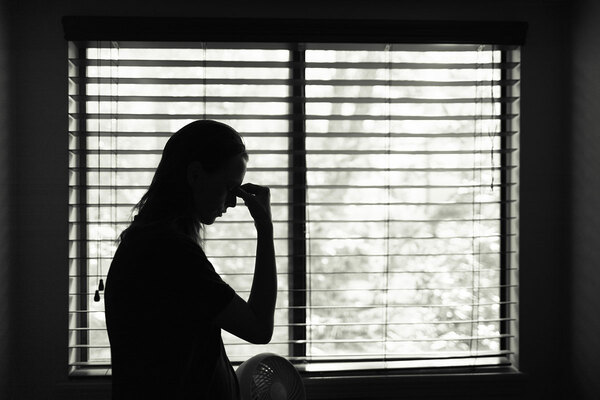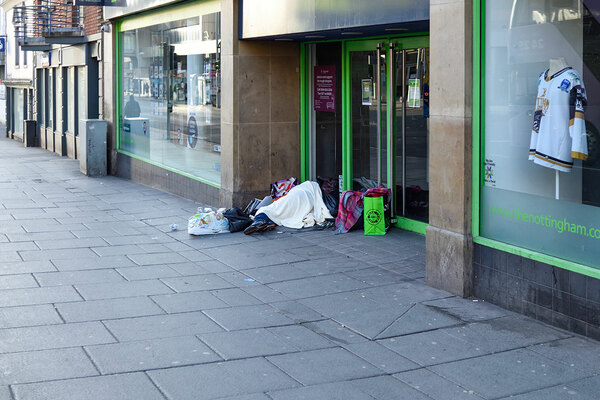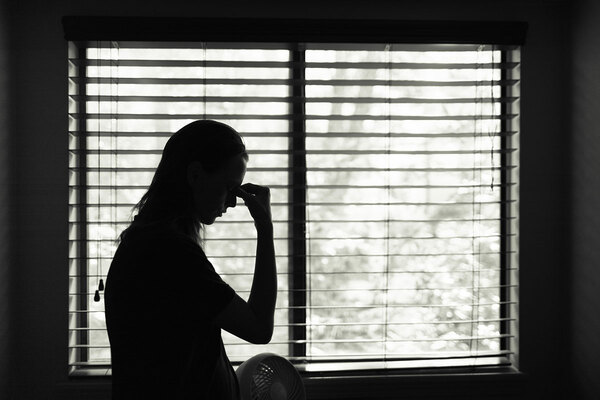You are viewing 1 of your 1 free articles
How to support those experiencing domestic violence during the lockdown
The sharp rise in domestic violence during lockdown is shocking but not surprising. Our support services have had to adapt, says Katy Fisher
It has been shocking, although sadly not surprising, to see the rise in cases of domestic abuse during the current COVID-19 pandemic.
Over a 21-day period last month, Refuge, the UK’s largest domestic abuse charity, reported a staggering 49% increase in calls to its helpline, as well as a 700% increase in a single day.
With government guidelines meaning that people are spending much more time isolated at home, victims can find themselves trapped with their abuser. And where victims would usually be able to reach out to family or friends for help, those opportunities have become limited.
Such is the scale of the crisis developing behind closed doors that communities secretary Robert Jenrick pledged £76m in government support for victims of domestic violence and modern slavery, and vulnerable children.
Home secretary Priti Patel also launched the #YouAreNotAlone campaign to highlight that support services remain open to help those subjected to this harrowing abuse.
Sanctuary Supported Living manages Plymouth Domestic Abuse Services (PDAS) and Torbay Domestic Abuse Service (TDAS), both of which are very much on the frontline supporting those who may be at increased risk.
Recognising the need for extra support, at PDAS we have extended our helpline so that it is now open 24 hours a day, seven days a week, giving victims access to valuable round-the-clock support.
Since the lockdown started, the services have received a sharp rise in the number of what are termed ‘crisis’ calls, where people need immediate help. Through our dedicated refuge at PDAS, Sanctuary has been able to provide temporary accommodation for victims, which is often at full capacity.
There are currently 24 adults and 35 children staying in our refuge and safe house accommodation but we are currently supporting around 300 people in total.
Such is the scale of the increase, Sanctuary has used its connections with the local authority to identify other suitable housing options and ensure there is a safe place for victims. The last property we had available was occupied within six hours of becoming vacant.
Awareness of the support available is also essential and we’ve been driving a social media campaign with the local authority to reach out to those who may be suffering. The Fleeing Domestic Abuse is Essential Travel campaign has helped guide an increase in people to our service, while information about the support available is also being displayed in local shops and supermarkets. While this step may appear small, visits outside the home environment may be the only time victims are on their own away from perpetrators.
“We may not be able to meet people face to face as much at the moment, but that doesn’t mean we are not there to support them, both now and in the future”
Domestic abuse, in all forms, can leave lasting scars and so the work PDAS and TDAS provides doesn’t stop at ensuring a person’s safety. We provide additional support to people with finances, building confidence and self-esteem, as well as signposting to local agencies, such as drug and alcohol services, so people who have been affected can build their future and move on with their lives.
Across the country, Sanctuary’s call centre staff are also making thousands of ‘keep in touch’ calls with residents. Primarily these are to check on a person’s general health and well-being, but staff will also be looking for signs that someone may need help – their tone of voice may be different or they may sound anxious, lack confidence or be trying to end the call in a hurry.
In these cases, the caller will work to help the person safely remove themselves from the home if needed or advise them to contact the police.
There are many ways Sanctuary can help someone who is suffering as a result of domestic abuse. We may not be able to meet people face to face as much at the moment, but that doesn’t mean we are not there to support them, both now and in the future.
The freephone National Domestic Abuse Helpline is available 24 hours a day: 0808 2000 247.
Katy Fisher, local service manager, Plymouth Domestic Abuse Services, Sanctuary Supported Living













